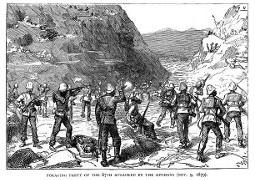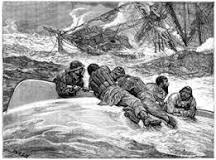Facial Justice – L.P. Hartley
A third world war almost eliminates the human race. A new society evolves in the UK. A society not as overtly authoritarian as that in 1984 nor as programmed as that in Brave New World. Justice is the goal and envy and privilege are banned. Of course, someone has to set standards and make decisions for the common good and so, an anonymous but not unloved ‘Dear Dictator’ runs the society.
Clothing and faces are standardised. Personality must be controlled so as to avoid creating envy. Faces are graded with Alpha being the best. The main character, Jael 97, is a ‘failed’ Alpha and the pressure is mounting for her to have a procedure to downgrade her looks to Beta. This procedure eventually takes place and she ends up being Betafied against her will. Jael 97’s reaction to the operation starts her on a journey which ultimately leads to major consequences for society.
I thought this was a slow read and probably just about worth the effort.

 Shortly after Russia withdraw from Afghanistan, the US Marine Corps sent some officers to the country to interview frontline Mujahideen leaders. The idea was to get an insight into how the guerrilla war was conducted and to then incorporate that knowledge into counter-insurgency training back in the US.
Shortly after Russia withdraw from Afghanistan, the US Marine Corps sent some officers to the country to interview frontline Mujahideen leaders. The idea was to get an insight into how the guerrilla war was conducted and to then incorporate that knowledge into counter-insurgency training back in the US.  In October 1918, Adolf Hitler is blinded in a gas attack on the western Front. Hitler presents with no physical damage to the eyes and is assessed to be suffering from a condition known as hysterical blindness. He is referred to Dr. Edmund Forster, an experienced army psychiatrist and neurologist known for his ‘shock treatment’ approach to curing patients.
In October 1918, Adolf Hitler is blinded in a gas attack on the western Front. Hitler presents with no physical damage to the eyes and is assessed to be suffering from a condition known as hysterical blindness. He is referred to Dr. Edmund Forster, an experienced army psychiatrist and neurologist known for his ‘shock treatment’ approach to curing patients. listed as Strange Lands but somehow we managed to talk while hardly mentioning books or authors although Jim Crace, John Le Carré, Patricia Highsmith and John Steinbeck got honourable mentions. The relative merits of story versus characterisation were debated. Cormac McCarthy got short shrift while poor old Jean-Paul Sartre was put firmly in his existentialist box and his homeland cast adrift in the Bay of Biscay, sauve qui peut. Thomas Schelling’s Micromotives and Macrobehaviour was briefly described in relation to the formation of racial, economic or religious ghettos despite the absence of prejudice.
listed as Strange Lands but somehow we managed to talk while hardly mentioning books or authors although Jim Crace, John Le Carré, Patricia Highsmith and John Steinbeck got honourable mentions. The relative merits of story versus characterisation were debated. Cormac McCarthy got short shrift while poor old Jean-Paul Sartre was put firmly in his existentialist box and his homeland cast adrift in the Bay of Biscay, sauve qui peut. Thomas Schelling’s Micromotives and Macrobehaviour was briefly described in relation to the formation of racial, economic or religious ghettos despite the absence of prejudice.